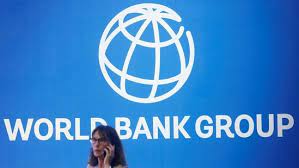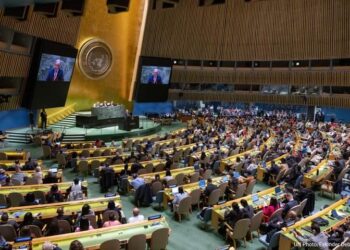The World Bank says global growth in 2024 would slow to 2.4 per cent—the slowest half-decade of GDP growth in 30 years.
In its latest Global Economic Prospects report, the global lender said the global economy is in a better place than it was a year ago as the global recession risk receded, largely because of the strength of the U.S. economy.
The Washington based lender noted that mounting geopolitical tensions could create fresh near-term hazards for the world economy.
The Bank notes in the report that the medium-term outlook has darkened for many developing economies amid slowing growth in most major economies, sluggish global trade, and the tightest financial conditions in decades.
According to the Bank, global trade growth in 2024 is expected to be only half the average in the decade before the pandemic.
“Meanwhile, borrowing costs for developing economies—especially those with poor credit ratings—are likely to remain steep with global interest rates stuck at four-decade highs in inflation-adjusted terms.
“Global growth is projected to slow for the third year in a row—from 2.6% last year to 2.4% in 2024, almost three-quarters of a percentage point below the average of the 2010s. Developing economies are projected to grow just 3.9%, more than one percentage point below the average of the previous decade,” the report notes.
After a disappointing performance last year, low-income countries are expected to grow 5.5 per cent, weaker than previously expected. By the end of 2024, people in about one out of every four developing countries and about 40 per cent of low-income countries will still be poorer than they were on the eve of the COVID pandemic in 2019. In advanced economies, meanwhile, growth is set to slow to 1.2 per cent this year from 1.5 per cent in 2023.
Speaking in that regard, World Bank Group’s Chief Economist and Senior Vice President, Indermit Gill, said: “Without a major course correction, the 2020s will go down as a decade of wasted opportunity. Near-term growth will remain weak, leaving many developing countries—especially the poorest—stuck in a trap: with paralyzing levels of debt and tenuous access to food for nearly one out of every three people.
“That would obstruct progress on many global priorities. Opportunities still exist to turn the tide. This report offers a clear way forward: it spells out the transformation that can be achieved if governments act now to accelerate investment and strengthen fiscal policy frameworks.”
Corroborating, World Bank’s Deputy Chief Economist and Director of the Prospects Group Ayhan Kose, said developing economies need to implement policies that would improve their fiscal and monetary framework
“To spark such booms, developing economies need to implement comprehensive policy packages to improve fiscal and monetary frameworks, expand cross-border trade and financial flows, improve the investment climate, and strengthen the quality of institutions. That is hard work, but many developing economies have been able to do it before. Doing it again will help mitigate the projected slowdown in potential growth in the rest of this decade,”




